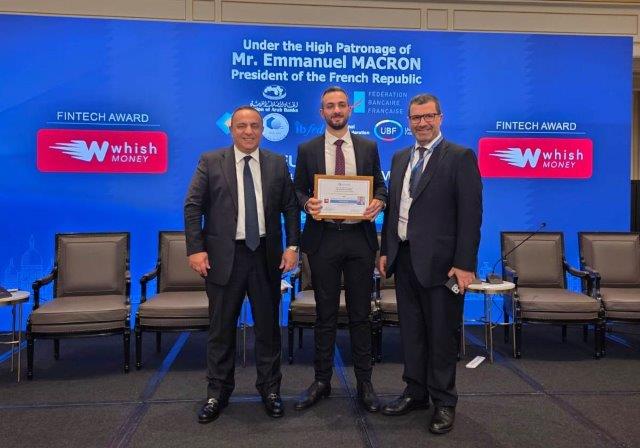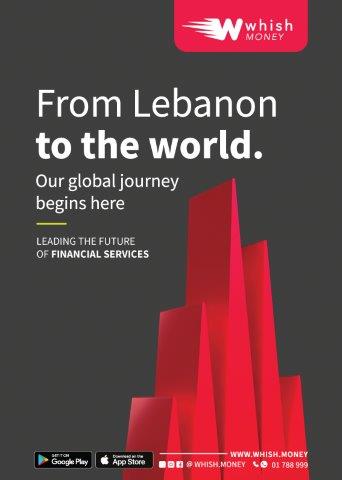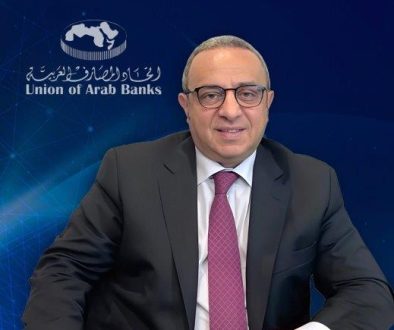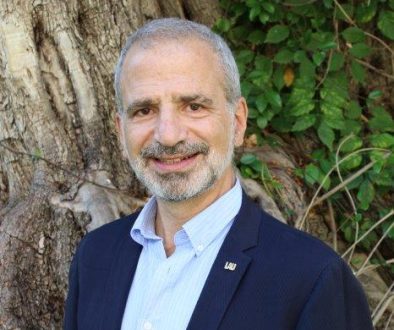Jose Torbey, Chief of Staff at Whish Money:
We treat compliance and security as technology challenges,
not operational bottlenecks

From left to right: Mr. Wissam Fattouh, Secretary General of Union of Arab Banks, Mr. Jose Torbey, Chief of Staff at Whish Money & Mr. George Fares, Vice President of Commercial at Whish Money
Whish Money began as i-Tel in 2007, pioneering digital distribution for telecom and gaming vouchers. “While traditional systems were paralyzed, we thrived because we were built differently: digital-native, agile, and fast. We didn’t wait for stability; we created it”.
Below is an interview with Mr. Jose Torbey, Chief of Staff at Whish Money:
1. Whish Money has grown remarkably from its roots in Lebanon to a global presence. What’s the story behind this evolution?
Jose Torbey: Whish Money began as i-Tel in 2007, pioneering digital distribution for telecom and gaming vouchers. Over time, we evolved into a full-fledged fintech platform, tackling financial inclusion head-on. Our growth was driven by a simple yet powerful mission: to replace cash with a secure, compliant, and accessible digital alternative. Today, we serve over 1.2 million users in 110+ countries, with offices in Lebanon, the UAE, and the USA. Our journey is a testament to the power of agility, innovation, and trust.
 2. How does your previous role as senior banker shape your role as Chief of Staff at Whish Money?
2. How does your previous role as senior banker shape your role as Chief of Staff at Whish Money?
Jose Torbey: I come from a background that bridges banking, payments, and fintech, with an MBA and a degree in Economics. This blend of industry experience allows me to navigate both strategic and operational dimensions. At Whish Money, I focus on aligning the leadership team, driving global partnerships, and ensuring the seamless execution of high-impact projects. My passion lies in transforming ideas into scalable digital solutions that make a real difference in people’s lives.
3. How did Whish Money not only survive but thrive during the last few years?
Jose Torbey: While traditional systems were paralyzed, we thrived because we were built differently: digital-native, agile, and fast. We didn’t wait for stability; we created it. We launched solutions like digital payroll, QR-based merchant payments, instant money transfers and instant digital cards issuance. We focused on real needs: sending money, paying salaries, buying groceries. By investing heavily to make digital payments as valuable as cash, we built a trusted ecosystem that empowered users and businesses alike.
4. Security and compliance are critical in fintech. How does Whish Money ensure both without compromising speed?
Jose Torbey: We treat compliance and security as technology challenges, not operational bottlenecks. Our platform is built on a multi-layered security stack. We use real-time transaction screening, machine learning for fraud detection, and end-to-end encryption. We’re licensed by the Central Bank of Lebanon and comply with global standards, including FATF travel rules. This digital-first approach allows us to be both fast and secure: qualities that have earned us the trust of global partners.
5. Whish Money has secured major international partnerships.
What’s the strategy behind these alliances, and how do they shape your growth?
Jose Torbey: Strategic partnerships are at the heart of our expansion. We’re proud to be the first regional e-wallet and money transfer company to partner with Visa, enabling Visa’s digital solutions for our users. We’ve also partnered with Mastercard, Ria, TerraPay, and many more, integrating our platform into the global financial ecosystem. These collaborations are a strong vote of confidence in our compliance and security. We’ve also worked with the World Bank on initiatives that promote financial inclusion through the disbursement of funds, proof that our platform is socially impactful.
6. What role do you see for banks in this rapidly evolving fintech landscape?
Jose Torbey: The future isn’t about competition, it’s about collaboration. We’re a technology company and work with the banking sector. Banks have the infrastructure, and fintechs like us have the agility. The opportunity lies in Banking as a Service (BaaS). By exposing their infrastructure, banks can power fintechs, gain many more customers through their platforms and unlock new revenue streams while increasing their volumes. It’s a symbiotic relationship that benefits the entire ecosystem.


